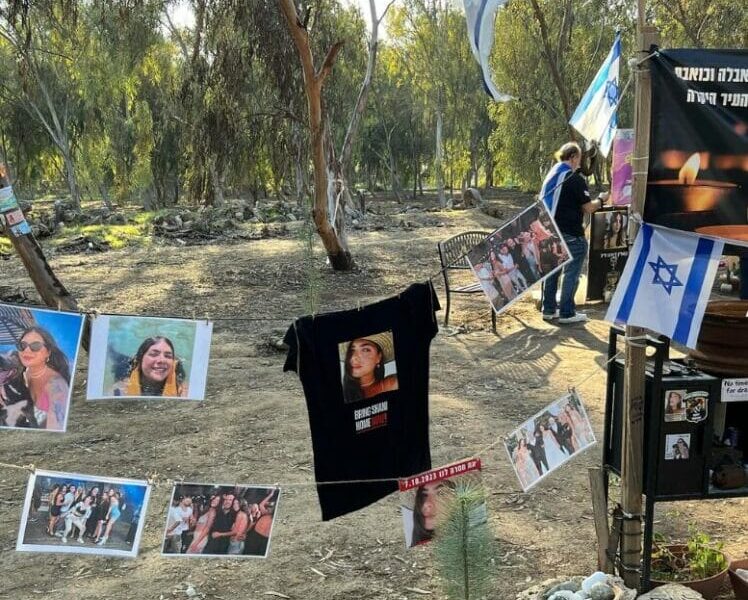Seven Tucson-area firefighters from five regional fire districts headed to Israel in late October to see firsthand how their professional counterparts deal with mass casualty incidents. Firefighters Without Borders is a unique project of the Greater Tucson Fire Foundation. The Tucson firefighters, including a member of Anshei Israel, are being hosted by Israeli fire service personnel and other first responders throughout the country, including Tel Aviv, the Gaza border region, Haifa and Jerusalem. The seven fire officers are from five regional agencies: Tucson Fire Department, Rincon Valley Fire District, Green Valley Fire District, Tucson Airport Authority Fire Department and the Northwest Fire District.
“This is not a diplomatic delegation – it is a fact-finding mission,” said Golder Ranch Fire District Chief Randy Karrer, who is also a foundation trustee. “Israeli first responders are internationally recognized andrespected for their knowledge and techniques that protect their civilian population. … The Israeli first responders have extensive experience in preparing for, responding to and recovering from several types of mass casualty incidents. Israeli firefighters not only respond to incidents our communities face on a daily basis, but are also trained to respond to events that might occur due to regional conflicts or terrorism threats and activities.”
Before departing for Israel, Green Valley Fire Captain Mark S. Lytle, who is a member of Congregation Anshei Israel, said he was very excited to see Israel from both Jewish and emergency management perspectives. “As a Jew, I have read the Torah, read stories about the Maccabees to my children, learned about the formation of Israel and have read the accounts of past and present struggles the Israelis face, but going there is another matter entirely,” says Lytle. “It is one thing to read about the Kotel, and another thing to stand before it. It is interesting to read about Israel’s struggle for independence, but seeing where Ben-Gurion proclaimed the State of Israel mends that disconnect. Watching a 15-second clip on the news about a rocket attack or border skirmish doesn’t provide any clear insight into these issues, but talking to the people who experience these issues does provide that insight.”
“As a firefighter, I am excited to learn how the Israeli Emergency Services operate from the moment an emergency call is generated to the time a patient receives definitive care in a hospital,” he continues. “We want to see how police, fire and emergency medical services (EMS) come together and support each other’s roles during a crisis. We want to see what we can learn from the Israeli approach to wildland fires, structure fires, hazardous materials incidents, terrorism, technical rescue and mass casualty events. Our delegation will also be sharing how we approach these types of events.”
Personally Lytle says he looks forward to connecting with the people and places of Israel. “Televised clips won’t form the bonds that sitting down and sharing a meal provides. Reading about the places detailed in the Torah doesn’t establish the same connection as having actually smelled the air or walked on the same ground as your ancestors. These are the personal memories I hope to take home from Israel.”
Professionally he hopes to learn how Israeli fire and EMS personnel respond to violent events such as terrorist attacks, active shooter situations and other large-scale emergencies. “Unfortunately, these are scenarios that firefighters and paramedics continue to encounter with greater frequency here in the U.S. If we want our response to these events to be more effective and increase the survivability of our patients, then we need to talk to the people that have encountered these types of events before. Hoping that these events don’t occur in our area is not a strategy, so preparing for that day is crucial.”
Karrer agrees: “Post 9/11/01 absolutely plays a role, however we have seen more and more domestic-type events that have the same outcome. Therefore, our quest to learn about the specific procedures that could help us manage these types of events will be a priority. “Additionally, we are looking at specific procedures that can be valuable to treat patients while on the scene. This information will not only be shared with the participating delegations and their departments, it is the mission of the GTFF to provide for the safety of all agencies in the Greater Tucson area.”
The delegates are sponsored by the nonprofit Greater Tucson Fire Foundation, with supportive funding provided by the Jewish Community Foundation and the Jewish Federation of Southern Arizona, as part of their Compelling Needs Grants Program.





